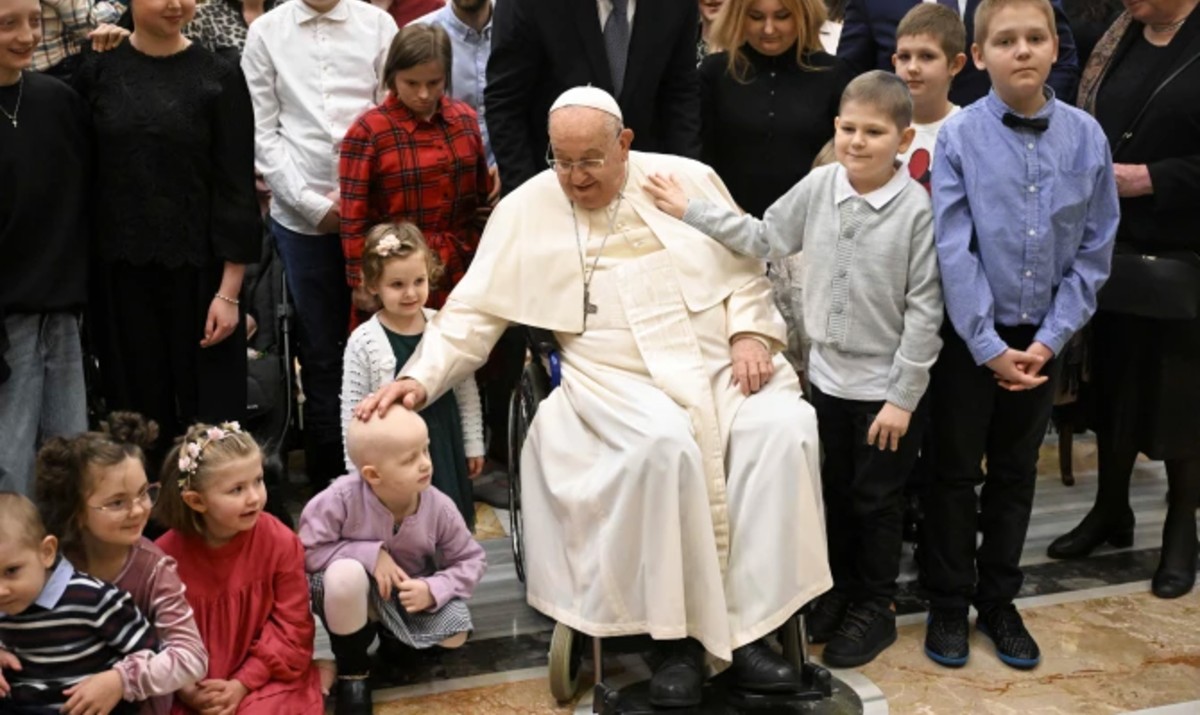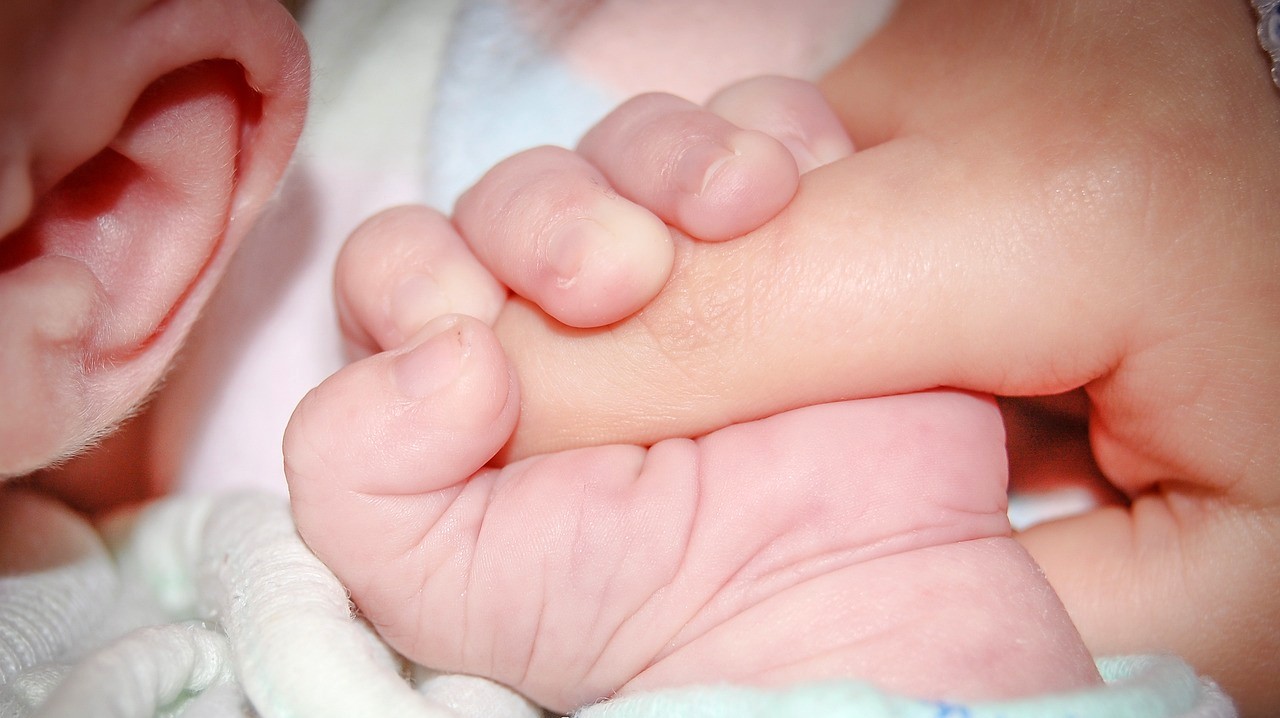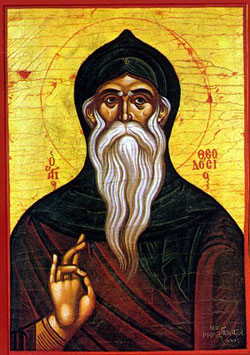We ask you, urgently: don’t scroll past this
Dear readers, Catholic Online was de-platformed by Shopify for our pro-life beliefs. They shut down our Catholic Online, Catholic Online School, Prayer Candles, and Catholic Online Learning Resources—essential faith tools serving over 1.4 million students and millions of families worldwide. Our founders, now in their 70's, just gave their entire life savings to protect this mission. But fewer than 2% of readers donate. If everyone gave just $5, the cost of a coffee, we could rebuild stronger and keep Catholic education free for all. Stand with us in faith. Thank you.Help Now >
Pope Francis: Our Lady reveals everyone has a place in the Church
FREE Catholic Classes
Pope Francis marked the feast of Our Lady of Guadalupe Tuesday saying the "mestizo" Virgin is a concrete sign that the Church is for everyone, especially the poor and marginalized.

Our Lady shows every person has a place in the Church.
Highlights
Catholic Online (https://www.catholic.org)
12/13/2017 (7 years ago)
Published in Living Faith
Keywords: Our Lady of Guadalupe
Vatican City (CNA/EWTN News) - Noting how Juan Diego, when Mary first appeared to him, had said that he was no one and wasn't worthy, the Pope said this sentiment can often be felt today in Latin America's indigenous and Afro-American communities, "which, in many cases, are not treated with dignity and equality of conditions."
This feeling of shame and unworthiness, he said, is also shared by many women "who are excluded because of their gender, race or socioeconomic situation," and by youth who "receive a low-quality education and don't have opportunities to progress in their studies nor enter the field of work in order to develop themselves and build a family."
It is also the feeling of the many poor, unemployed, migrants, and displaced people "who try to survive in the informal economy," and is also the shame felt by young boys and girls who are subjected to child prostitution, which Francis noted is "often linked to sexual tourism."However, Mary, the Mother of God, is the image of the Church, he said, and from her we learn how to be a Church "with a 'mestizo' face, with an indigenous, African-American face, the face of a peasant," just like Our Lady of Guadalupe, he said.
In her, we see the face of the poor, the unemployed, of the young, and the old, "so that nobody feels sterile or infertile, so that no one feels ashamed or that they are nothing."
Pope Francis celebrated Mass in St. Peter's Basilica marking the Dec. 12 feast of Our Lady of Guadalupe.
Veneration of Our Lady of Guadalupe dates back to the 16th century when a "Lady from Heaven" who identified herself as the Mother of the True God appeared to Saint Juan Diego, a poor Indian from Tepeyac, on a hill northwest of Mexico City.
She instructed Juan Diego to have the bishop build a church on the site of the apparitions. As a sign, the now-famous image of Our Lady of Guadalupe was imprinted miraculously on his tilma, or cloak. Both the image and the tilma remain intact after more than 470 years.
Pope Francis centered his homily for the celebration around the Gospel reading from Luke, in which Mary visits her cousin Elizabeth shortly after the Annunciation.
The Pope noted how when Mary arrives, one of the first thing Elizabeth says is "how does this happen to me, that the mother of my Lord should come to me?"
Elizabeth, who had previously been marked by the sign of sterility, is now singing praise "under the sign of fertility and amazement," Francis said.
He pointed to the two states of Elizabeth before and after her encounter with Mary: first her sterility and then her fertility and amazement.
The religious mentality at the time viewed sterility "as a divine punishment" for a personal sin or the sin of one's spouse, he said, noting that it was "a sign of shame she carried in her own flesh because she considers herself guilty of a sin that she did not commit or because she felt like nothing since she was not able to live up to what was expected of her."
This type of sterility, the Pope said, is one "that goes deep and ends up paralyzing all life," and which takes on "the many names and forms of every time a person feels in their flesh the shame of being stigmatized or feeling like nothing," much like Juan Diego.
However, after meeting Mary, Elizabeth becomes fertile and filled with wonder, he said. She is the first one to recognize her cousin as the Mother of God, and she also experiences in her own flesh the fulfillment of God's word, because she now carries the "precursor to salvation."
In Elizabeth, Francis said, we understand that "God's dream is neither sterility nor to stigmatize or shame his children," but is rather "to bring forth in them and from them a song of blessing."
The same goes for Juan Diego, he said, noting that it was precisely he, and no one else, that carried the image of the Virgin in his tilma: "the Virgin of brown skin and a 'mestizo' face," he said, referring to the fact that she was of a mixed indigenous race. The term "mestizo" was used at the time to describe the children born to Spanish and Aztec parents.
By appearing this way, Our Lady, he said, is a mother who is capable of taking on the various traits of her children "in order to make them feel part of her blessing."
In thinking about the themes of sterility and fertility or fruitfulness, Francis said we can also relate these to the richness of the cultural diversity in Latin American and the Caribbean.
This diversity, he said, is "a sign of the great richness that we are invited not only to cultivate, but, especially in our time, to courageously defend from all attempts to homogenize which end up imposing -- under attractive slogans -- a singular way of thinking, of being, of feeling, of living."
In the end, these efforts at uniformity end up "making either invalid or sterile everything inherited from our elders." They make people, and especially the youth, "feel like nothing because they belong to this or that culture."
Pope Francis said the diversity and fruitfulness of Latin America makes it a requirement "to defend our peoples from an ideological colonization" which seeks to cancel out what makes these cultures rich and unique, "be they indigenous, African-American, mestizo, peasants or suburban."
On the contrary, everyone is called to be like Elizabeth and Juan Diego, feeling that they are "the bearer of a promise, of a hope," but as one people, without canceling out the features of one or another.
The Pope closed his homily encouraging faithful to echo the song of Elizabeth, and, like so many who never tire of repeating it, say together: "blessed are you among women, and blessed is the fruit of your womb, Jesus."
Perfect Catholic Gifts-Catholic Online Shopping
---
'Help Give every Student and Teacher FREE resources for a world-class Moral Catholic Education'
Copyright 2021 - Distributed by Catholic Online
Join the Movement
When you sign up below, you don't just join an email list - you're joining an entire movement for Free world class Catholic education.
-

-
Mysteries of the Rosary
-
St. Faustina Kowalska
-
Litany of the Blessed Virgin Mary
-
Saint of the Day for Wednesday, Oct 4th, 2023
-
Popular Saints
-
St. Francis of Assisi
-
Bible
-
Female / Women Saints
-
7 Morning Prayers you need to get your day started with God
-
Litany of the Blessed Virgin Mary
Introducing "Journey with the Messiah" - A Revolutionary Way to Experience the Bible
-

Pope Francis Calls Young Cancer Patients
-

Senate to Vote on Protecting Babies Who Survive Abortions
-
Mel Gibson Prepares to Bring The Resurrection of the Christ to the Big Screen in 2025
-
Catholic Response to Devastating Los Angeles Wildfires
Daily Catholic
 Daily Readings for Saturday, January 11, 2025
Daily Readings for Saturday, January 11, 2025 St. Theodosius the Cenobiarch: Saint of the Day for Saturday, January 11, 2025
St. Theodosius the Cenobiarch: Saint of the Day for Saturday, January 11, 2025 Prayer for a Blessing on the New Year: Prayer of the Day for Tuesday, December 31, 2024
Prayer for a Blessing on the New Year: Prayer of the Day for Tuesday, December 31, 2024- Daily Readings for Friday, January 10, 2025
- St. William of Bourges: Saint of the Day for Friday, January 10, 2025
- St. Theresa of the Child Jesus: Prayer of the Day for Monday, December 30, 2024
![]()
Copyright 2024 Catholic Online. All materials contained on this site, whether written, audible or visual are the exclusive property of Catholic Online and are protected under U.S. and International copyright laws, © Copyright 2024 Catholic Online. Any unauthorized use, without prior written consent of Catholic Online is strictly forbidden and prohibited.
Catholic Online is a Project of Your Catholic Voice Foundation, a Not-for-Profit Corporation. Your Catholic Voice Foundation has been granted a recognition of tax exemption under Section 501(c)(3) of the Internal Revenue Code. Federal Tax Identification Number: 81-0596847. Your gift is tax-deductible as allowed by law.








 Daily Readings for Saturday, January 11, 2025
Daily Readings for Saturday, January 11, 2025 St. Theodosius the Cenobiarch: Saint of the Day for Saturday, January 11, 2025
St. Theodosius the Cenobiarch: Saint of the Day for Saturday, January 11, 2025 Prayer for a Blessing on the New Year: Prayer of the Day for Tuesday, December 31, 2024
Prayer for a Blessing on the New Year: Prayer of the Day for Tuesday, December 31, 2024


